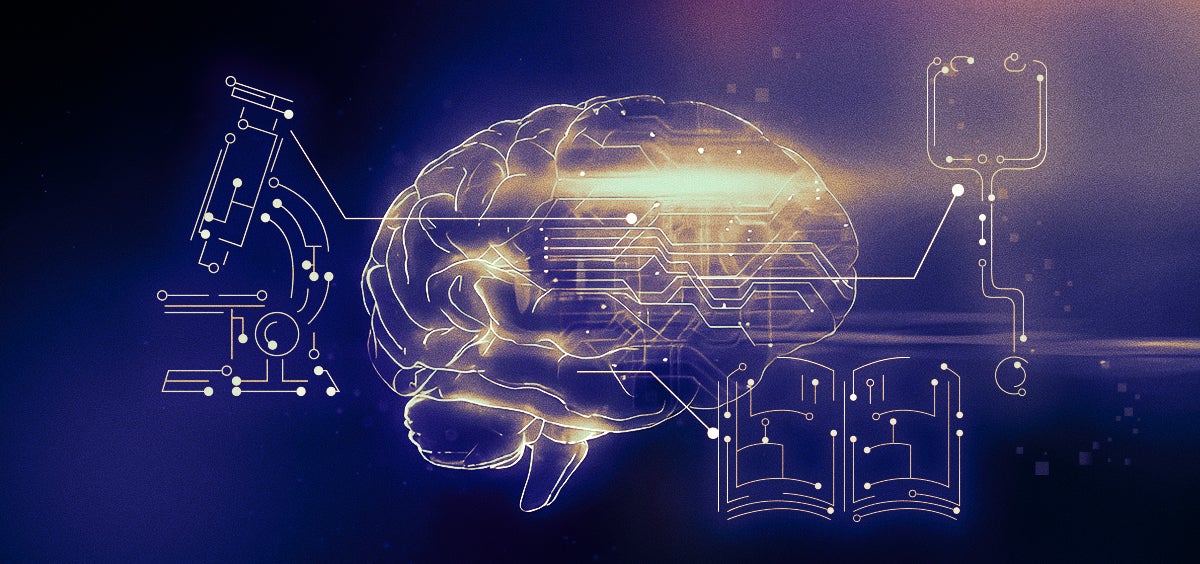Ai and deep learning have distinct benefits and challenges. They are often used together to achieve advanced capabilities such as visual recognition and natural language processing.
The benefits of ai and deep learning lie in their ability to quickly analyze large amounts of data that would be difficult or impossible for humans to process. They can also automate tasks, enhance accuracy and improve efficiency. However, the challenges involve the high costs of implementing these technologies and the potential for biased or incorrect results.
In this article, we will explore the benefits and challenges of ai and deep learning in detail and provide insights into how they can be used to further advance industries such as healthcare, finance, and transportation.

Credit: www.gatesnotes.com
What Is Ai And What Are Its Benefits?
Understanding The Concept Of Ai
Ai stands for artificial intelligence. It is an advanced technology that enables machines to perform tasks that would typically need human intelligence, like decision-making, perception, learning, and linguistic intelligence. Computers are programmed to learn from data by utilizing machine learning and deep learning algorithms.
This technology has significant potential to revolutionize various industries.
The Benefits Of Ai In Various Industries
Ai provides a vast number of benefits in various industries, making processes efficient, effective, and time-saving.
- Healthcare: Ai can help in diagnosis, personalize treatment for patients, predict health outcomes, and manage patient flow.
- Manufacturing: Ai can optimize the production process, provide predictive maintenance, and improve quality control.
- Retail: Ai can be used for product recommendations, inventory management, demand forecasting, and personalization.
- Finance: Ai can be used for fraud detection, risk assessment, portfolio management, and customer service.
Case Studies On The Utilization Of Ai
Ai is already making significant changes to various industries.
- Amazon: Amazon uses ai-powered algorithms like deep learning to analyze customers’ buying behaviors and provide personalized product recommendations.
- Tesla: Tesla utilizes ai in self-driving cars, which uses machine learning algorithms to learn from real-world driving scenarios, enabling the cars to drive safely and efficiently.
- Google: Google uses ai to provide personalized search results to users and improve ad targeting.
Ai has enormous potential to revolutionize numerous industries. The benefits of ai are limitless, from making processes effective to provide personalized customer experience. It is already making significant changes to various industries, and this trend is only going to increase in the future.
Deep Learning: What Is It And Why Is It Important?
In recent years, deep learning has transformed the way we approach ai and machine learning. Understanding deep learning is crucial in recognizing its importance in modern technology.
Understanding Deep Learning
- Deep learning is a subfield of machine learning that uses complex neural networks to learn and improve upon tasks, experiences, and data.
- It mimics the neural network of the human brain to process and analyze large datasets.
- It requires a vast amount of high-quality data to “train” or teach the neural network to recognize patterns and make predictions.
The Difference Between Ai And Deep Learning
- Ai is a broad concept that covers all computer systems mimicking human intelligence.
- Deep learning is a specific technique used in machine learning, falling under the umbrella of ai.
- Not all ai systems use deep learning, but all deep learning systems are considered ai systems.
The Importance Of Deep Learning In Modern Technology
- Deep learning has become a catalyst in advancing ai technology as it allows computers to learn from unstructured data such as images, text, and sound.
- It has made significant advancements in speech recognition, image recognition, and natural language processing.
- Companies are integrating deep learning in various industries such as healthcare, finance, and transportation to develop predictive models and gain insights that were once impossible to achieve.
Deep learning is revolutionizing our approach to ai. By mimicking the human brain, deep learning has enabled computers to process vast amounts of data, generate predictions, and reach levels of accuracy that were once considered impossible. With continuous advancements in this field, deep learning has undoubtedly carved a vital role in shaping the future of modern technology.
Challenges Faced By Ai And Deep Learning
Artificial intelligence (ai) and deep learning are transforming the way we interact with technology by automating complex processes and enabling faster decision-making. Despite their potential to revolutionize various industries, these technologies face significant challenges and limitations that limit their progress.
In this section, we will discuss the challenges faced by ai and deep learning, along with ethical and moral considerations, and current debates and controversies.
Limitations Of Ai
Ai technologies have limitations that pose a significant challenge to their adoption and integration.
- Lack of emotional intelligence: Ai systems lack the ability to process emotions, which limits their decision-making capabilities in contexts that require emotional intelligence.
- Data dependency: Ai requires a large amount of data to function correctly. This dependence on data makes it challenging to develop complex and real-world ai applications since the data required may not always be present or readily available.
- Human intervention: Ai technologies require human intervention to update and maintain their algorithms. This dependency on human intervention for maintenance and updates can be time-consuming and expensive.
Challenges And Limitations Of Deep Learning
Deep learning is a subset of ai that involves training deep neural networks to recognize patterns in data.
- Data preprocessing: Deep learning requires a significant amount of preprocessing and feature engineering to obtain meaningful results. This requirement can be an arduous task, requiring extensive expertise and time.
- Computationally intensive: Deep learning requires significant computational resources to train deep neural networks. This requirement makes training large neural networks challenging and expensive.
- Black box problem: Deep learning models are often considered black boxes since their decision-making processes are not always transparent or explainable.
Ethical And Moral Considerations
Ai and deep learning technologies raise various ethical and moral considerations, such as:
- Bias and fairness: These technologies could perpetuate societal biases and discrimination if not developed, trained, and tested appropriately.
- Privacy and security: Ai and deep learning raise significant privacy and security concerns, as they involve the collection, processing, and analysis of vast amounts of personal and sensitive data.
- Autonomy and accountability: Ai and deep learning have the potential to make autonomous decisions. Therefore, there must be systems in place to ensure accountability in case something goes wrong.
Current Debates And Controversies
Ai and deep learning are at the center of various ongoing debates and controversies, including:
- Automation and job losses: The increasing adoption of ai and deep learning technologies is poised to automate various jobs, raising concerns about job displacement and job losses in certain industries.
- Regulation and governance: The development and deployment of ai and deep learning raise significant challenges regarding regulation and governance, such as policy formulation, legal frameworks, and ethical guidelines.
Ai and deep learning technologies offer immense potential in various fields. However, their challenges and limitations, ethical and moral considerations, and ongoing debates and controversies need to be addressed to ensure their safe and responsible development and deployment.
Frequently Asked Questions For Ai Vs. Deep Learning: What Are The Benefits And Challenges?
What Is The Difference Between Ai And Deep Learning?
Ai refers to machines that perform tasks that typically require human intelligence, while deep learning is a subset of ai that uses neural networks to recognize patterns in data and make informed decisions.
What Are The Benefits Of Ai And Deep Learning?
Ai and deep learning have transformed industries by improving everything from healthcare to marketing. Benefits include enhanced decision-making, increased efficiency, and improved accuracy.
What Are The Challenges Of Implementing Ai And Deep Learning?
There are significant challenges associated with implementing ai and deep learning, including a shortage of qualified personnel, ethical concerns, and the difficulty of effectively training models.
How Can Companies Prepare For The Future Of Ai And Deep Learning?
To prepare for the future of ai and deep learning, companies should focus on continuous learning and staying up-to-date on the latest developments. They should also prioritize ethical considerations surrounding the use of ai.
Conclusion
As we can see, both artificial intelligence and deep learning have their own set of unique benefits and challenges. While ai systems offer immense flexibility and adaptability, deep learning algorithms set themselves apart by their capacity to take in and learn from vast amounts of data.
Amidst the advancements in technology, the scope of ai and ml continues to expand, opening doors to new opportunities and challenges. Some of these challenges include the ethical implications of ai systems and the risk of biases creeping into the algorithm.
However, with ongoing research and development, we can address these challenges and bring about new and exciting possibilities in the field of ai and deep learning. It’s nearly impossible to predict what the future holds, but one thing is certain – ai and deep learning will be at the forefront of technological innovations in the years to come, shaping the way we live, work, and interact with machines.



An intriguing discussion is worth comment. I do think that you should publish more on this topic, it might not be a taboo subject but generally people dont speak about such subjects. To the next! Cheers!!